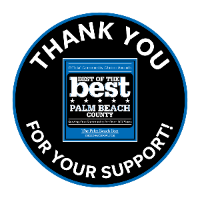Not a Member? Join us today!
It's easy to join! Apply for your lifetime Membership with iTHINK Financial in about 10 minutes.
MEET WITH US ON YOUR TIME
Schedule an in-branch or phone appointment at a time convenient for you.
Featured Products
You can turn to iTHINK Financial for the right solutions to all of your financial needs!
10 Ways to Save on Car Costs
By: iTHINK Financial | Mar 06, 2019

Cutting Down on Car Costs
There’s no getting around it: almost every adult needs a car. But the costs that come with owning a car can account for a large portion of monthly expenses. With gas, insurance, maintenance and more, bills add up quickly. So if you’re in the market for your first vehicle, or just want something new, cost is a huge factor in determining what you leave the lot with. While there are unavoidable price tags that come along with owning a car, there are also smart ways to save on car costs.
If You’re Looking to Buy a Car
New or Used Car?
Before you even go to the car lot, you probably already know if you’re looking for something new or used. While cars with previous owners can be just as reliable as new models, being knowledgeable and doing your research is the key to a great buy. If you’re too hasty, you could get stuck spending money on repairs that could’ve been put into a better car. Try making
a pros and cons list to decide which buying option is best for you.
Lease or Buy?
Leasing means monthly payments and fees, while choosing to buy gives you the option to pay for a car in full. If you’ve created a stable financial situation for yourself, leasing could be easily worked into your monthly budget and prove to be a
cheaper option. If you’re new to car ownership and are still working on solidifying finances, buying may be the right choice. This way, you can build credit by making payments, and once you pay the loan off, you’ll keep your car without
the obligation of the monthly bill.
Luxury or Affordable?
When shopping for a new or used car, you’ll need to draw the line between wants and needs. Are you ready to splurge on your dream car or should you save luxury for later? Even if you can afford a premium brand, take the time to think about if it’s the best choice. If you think you’re ready to spend big, rent the car you have in mind to take it for a spin a few times before committing to it long term. Non-luxury brands also offer cars that compare to high-end competitors without the hefty price.
Which Style Suits Your Needs?
It’s common knowledge that bigger cars often come with bigger costs, but do you know exactly how much? Considering truck owners spend an average of $10,054 on
vehicle expenses annually compared to the $6,354 annual average for small sedan owners, size could matter more than you realize.
Whether you go with a sedan, coupe, SUV or minivan, pick the right car for your lifestyle. If you’re
single or don’t plan on expanding your household in the next few years, a smaller car should do. If you have a growing family, then you’ll likely invest in something larger.
Insurance
Do your research when it comes to picking your car insurance plan. Driving safely and obeying road rules will keep your rates low, or help lower them in the long run if you already have some incidents on your driving record. Some insurance companies also
offer discounts for being a homeowner, a consistently good driver or having good grades if you’re a student.
Buying a car with safety features is a smart move if you’re hoping to save on car insurance. Anti-lock brakes, rearview
cameras, theft prevention technology and other safety equipment help protect you, other drivers and your bank account.
Gas
Shifts in the economy will always impact gas prices, but buying cheaper gas can help you be less affected by changes. Before filling up with premium gas, check your car’s manual to see what type of gas is recommended. You could be pleasantly surprised
to find that cheaper gas will do just fine.
If you’ll regularly be making a long commute or just want to save on gas, consider a hybrid vehicle. Electric cars are another option to keep in mind. Electric car owners pay an average
of only around 5 cents per mile, while gas-powered cars cost about 15 cents per mile. With less trips to the pump, you’ll spend
less on filling your tank and have more money for the necessities.
If You Already Own a Car
Refinance Your Car Loan
If done the right way, refinancing your car loan could help save money. Refinancing allows you to rethink your car payments and apply for a new loan. Usually the new amount will be equal to the amount you currently owe, but you can adjust the length of
the loan, making it longer, shorter or keeping it the same. Extending the loan will lower payment costs, but will likely raise interest overtime. Refinancing requires thought and planning, but could lighten your financial burdens if it’s the
right option for you.
Keep Up with Maintenance
Staying up-to-date on the maintenance of your vehicle will prevent pricey repairs and surprises. Perform a routine inspection on your car by doing general checks for things like low tire pressure, if your oil needs to be changed and examining belts and hoses. If you aren’t sure how to determine if your car is in good shape, refer to your owner’s manual. Keeping up with the maintenance of your car is important to its longevity
and minimizing the impact of daily wear and tear.
Public Transportation
Taking advantage of the public transportation system in your area could be key to cutting down on car expenses. It’s estimated that those living in cities with reliable public transit can save up to $10,000 yearly on transportation costs. By taking the bus or train to your destination you’ll reduce wear and tear on your own vehicle and spend less on gas. There’s also a positive impact
on the environment when you choose public transportation over driving.
Carpool
Maybe your schedule doesn’t work well with the transit system, or your city’s public transportation isn’t up to par. If riding the bus or train isn’t for you, carpooling is another opportunity to keep car costs manageable. Riding
with others saves on expenses like tolls and routine maintenance. Suggest alternating driving days with your roommates, friends and coworkers before going to your next destination.
If you don’t plan accordingly, car costs can be more than you bargained for. Buying can be overwhelming, but planning how to fit a vehicle into your regular finances and knowing what to expect cost-wise will make all the difference. When you follow a budget and drive smart, it’s simple to keep a handle on all costs car related.
Upcoming Events
Check out the upcoming events happening at iTHINK Financial.
Quick Pay and Skip-A-Pay
Make a loan payment or skip your upcoming loan payment without logging in to Online Banking!





